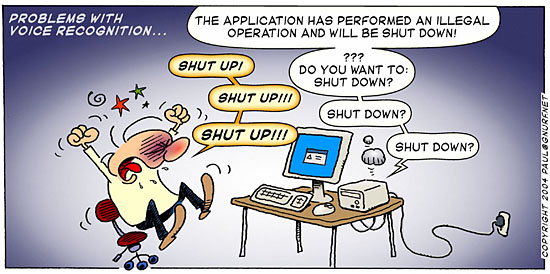 I can't believe the number of articles that over-complicate and philosophize how to enjoy and do well on social sites. (Or you can skip to the big list of links.) Disclaimer: This isn't any kind of "always works" formula for manipulating votes. It's just a simple introduction with some common-sense tips. I'll start by talking about Digg, and then cover Twitter a bit:
I can't believe the number of articles that over-complicate and philosophize how to enjoy and do well on social sites. (Or you can skip to the big list of links.) Disclaimer: This isn't any kind of "always works" formula for manipulating votes. It's just a simple introduction with some common-sense tips. I'll start by talking about Digg, and then cover Twitter a bit:
Getting your item to be "made popular" on Digg.
The first stage is watching your item climb the "Hot in [subcategory]" upcoming page for your post. For example: digg.com/all/world_news/upcoming. If your post rises here, it will either disappear or make the "Top in [category]" page. Example: digg.com/world_business. Making the top of your category page will bring you TONS of traffic. If it fades, it was either surpassed by faster-rising submissions, or too much time elapsed (over 24 hours or so). But best of all is making the front page of digg overall.
When my last post made the front page of digg (a photo) it rapidly received over 140,000 views and well over 1,800 diggs. I deleted it pretty soon after, mainly because I decided it was indirectly unkind to the family involved. (But you can still see the digg submission and thumbnail here.) Now, on with the "how to:"
Make your homepage your friend's submissions
Add the user who submitted something you enjoyed to your friends. Make the feed of your friend's submissions one of the home pages in your browser. (You do have multiple home pages, right?) Press the F11 key at the top of your keyboard when you're browsing friend's submissions (press it again to return to normal mode).
 The more friends you add, the more time you should spend finding and digging stories only from your friends submissions or shouts. It's amazing how much good stuff doesn't make it to the home page.
The more friends you add, the more time you should spend finding and digging stories only from your friends submissions or shouts. It's amazing how much good stuff doesn't make it to the home page.
On Digg, this page is digg.com/users/[YOURUSERNAME]/friends/submissions. (The equivalent page on Reddit is reddit.com/r/friends/new.) Digg headlines and descriptions that you think look worthy and go back through your list of dugg stories to chose ones to read. Unless you have a lot of free time, you should digg things that look good and only later go back and choose which ones to read. You're watering the garden for your friends by digging their stories, as long as you digg them while they're new, or barely a few hours old. (When you have a lot of friends, you can make your homepage the feed of your friend's shouts.)

I don't advise digging someone's story, and then shouting to tell them you did and ask them to digg something back. But when someone shouts this to me I almost always take a close look at what they've got.
DO click the link at the top of Digg that says new shouts, and digg all you like. Shouting is more of an advanced topic, (here's a basic how-to shout on digg) but for sure experiment by sending a few, and reading most that come your way.
For some great Reddit-specific tips, try this article.
 Note that "shout to all" only goes to your first 100 friends, so you'll have to manually shout to each 100 when you have more than 100 friends (and you should!) Also realize that Digg adjusts how features work from time to time, so references go out of date from time to time.
Note that "shout to all" only goes to your first 100 friends, so you'll have to manually shout to each 100 when you have more than 100 friends (and you should!) Also realize that Digg adjusts how features work from time to time, so references go out of date from time to time.
Link to your followers content when appropriate
On sites where users promote their own content, I'll use Twitter as an example: link to their content when appropriate in your @ comments directly to them. It lets others visit the site your are referring to, and helps promote their work. On Twitter, starting a comment with @[USERNAME] adds your post (called a "Tweet" on Twitter) to what is essentially their public inbox (twitter.com/replies).
Understanding Twitter
Prefer a simpler introduction to Twitter? Here's a great video introduction:
Always send a Tweet thanking anyone who follows you. It's the perfect way to make a connection. When Direct Messaging ("DMing") , if you're not sure if it would be perceived as spam, you can ask in the message. (
Disagree?) Or don't do it. It's a great way to open a conversation, but be careful with it. You can say, for example, "[Brief message with link]. I don't/won't usually DM links, please say if this is spammy ..." Also realize that some users get their DM's on their phone.
Of course, if you really want the inside scoop on how people use Twitter, there is none better than the hilarious collection of inside jokes in the video below, "No Twitter for Hitler."
Follow your friends around the web
Comment on their blog posts,
join their network on LinkedIn (
why?) or elsewhere--at least read their profile!
Find people you respect, or have something in common with, and give them some attention. Set aside some time to read what they've written and when you find something you like, say something thoughtful about it in a comment or message to them. And avoid folks that seem like a poor fit for you, just because you're supposed to "network." Look for people you can help, like minds, and people willing to help you,
in that order. I can't tell you how many times I've done a Google search for something of interest to a new contact and found something that helped them. Really. Othertimes it just helps me learn a little more about them.
Tools: Once you get better at this stuff ....
grab some tools to make it even easier:
Oh .. and use FireFox; it has hundreds of incredibly useful add-ins and extensions that you can't use without FireFox.
Also, read a few articles, get a few tools, and put your own wisdom down in writing (everyone else does). But if you're really geeky,
this Forrester research post is worth a look. Any sites
you would recommend? Also check the big list of articles at the end of this post.
Creating content that becomes popular on social sites
Not going to reinvent the wheel: here is an excellent article on
creating good viral content, or, if you need to hear from the "
experts,"
try this article.
Recent research indicates that to give articles the best chance to go viral (such as reaching the front page on Digg), you should submit them after (or before) dinner (C.S.T.) Tue-Thu. Results go down if you submit earlier in the day or earlier in the week. The best days in order, best to worst, are: Thursday, Tuesday, Wednesday or Friday, Monday, Saturday or Sunday. If you're seeking to expand on Twitter, this looks like a
collection of interesting tools.
There's a lot more that could be said, but somehow these basic ideas seem to be overlooked a lot, so I've kept this short and simple.
Comments?Big list of Social Media articles by Chris BroganThese appear with permission of Chris Brogan. Click the headline above for links to the articles:
Community Development- Understanding Community Development Strategies
- Ways to Disrupt a Community
- Why Do Community Development
- Should Your Small Business Use Community Tools
- The Long Tail of Community
- If Communitites Are Just Marketing Pools
- The Magic of Including People
- Meeting People at Events
- The Community Play
- The Community Ecosystem
- How Blogs Improve Customer Service and Product Development
Social Networks- Three Things LinkedIN Does Better than Facebook
- How I Use Facebook
- Things To Do on Facebook
- Facebook - Let Me See My Friends
- Fix Your Facebook Profile Now
- Facebook and the Social Graph - Who Benefits
- Five Things to Do on LinkedIN
- Considering Social Etiquette
- Social Networks are Your Local Pub
- Why Join Another Social Network
- Marketers in a Social Network World
- Real Live Human Social Networking
- Social in Real Space vs. Social Networking
- Making Social Networks Work
- Improve Your Social Network
- The Importance of a Human Social Network
- Three Untapped Values of Social Networks
- Five Things to Do at a Social Networking Meetup
Social Media- Social Media Starter Pack
- A Basic Social Media Strategy
- My Social Media Toolkit
- A Sample Social Media Toolkit
- Participation- The Key to Social Media
- Social Media - Talk is Cheap for Businesses
- How Big Companies could Use Social Media
- Social Media Inside the Firewall
- Social Media Power Secret - Listening
- Small Businesses And Social Media
- Social Media is a Set Not a Part
- Social Media for Your Career
- Help Someone Understand Social Media
- Social Media as Personal Power
- Snake Oil in Social Media
- Using Social Media to Meet People
- Social Media Starter Moves for Entertainers
- Social Media Starter Moves for Real Estate
- Social Media Starter Moves for Freelancers
Twitter
- How I Use Twitter
- Deeper Twitter - Tuning Twitter for Value
- Newbies Guide to Twitter
- Twitter as Directors Commentary
- Twitter as an Advisory Board
Personal Branding- The Power of Personal Leadership
- Slicing Time in a Face to Face Environment
- Brand Stories
- Some Quick Branding Tips for Individuals
- The foundations of Your Power
- Personal Scalability
- Personal Branding and Social Media
- Passion Drives Personal Brand
- Elements of a Personal Brand
- Challenges of Social Media Types in the Workplace
- The Value of Networks
- Scaling Yourself
Making Media- Why Create Personal Media
- Whats Your Social Media Strategy
- Media Makers Next Steps
- Blogging Advice for the Next Level
- Expand Your Audience
- The Future of Microcontent and Hperlocal Media
- Why Bother Blogging Podcasting and Using Social Networks
- Consider Your Media-as-Business Strategy
- Marketing Media Means Moments That Matter
- Using Social Sharing to Extend Your Message
- Performance and Your Audience - Blogging Tips
- Advice for Traditional and Local News Media
- Tagging and Metadata and Why Bother
- A Sunday Newspaper Strategy for Traditional Companies
- Promoting Your Media
- The Power of Links
- 20 Blogging Projects for You
- Succeeding in Independent Online Media
- Seven Blog Improvements You Can Make Today
- Keeping the Blogging Fires Burning
- 100 Blog topics I hope YOU Write
- 100 PodCamp Topics for You to Cover
Read more!
 Lots of people don't realize voice recognition is already available free on their computer (if they own a recent edition of Office or are running Vista). You just have to turn it on/activate it. Or, it can be purchased for under $40 (see bottom of this post). It bothers me that there were no replies to request for help on this issue anywhere on the web--meaning few are using this great feature.
Lots of people don't realize voice recognition is already available free on their computer (if they own a recent edition of Office or are running Vista). You just have to turn it on/activate it. Or, it can be purchased for under $40 (see bottom of this post). It bothers me that there were no replies to request for help on this issue anywhere on the web--meaning few are using this great feature. If you do want to start using it, a few recommendations are:
If you do want to start using it, a few recommendations are: Don't have it and want it? Here are three highly rated vendors you can buy it from in early 2008: $36.95 �� $47.23 �� $46.55. (The product you are buying in some cases is Works 2002 Suite with Word 2002/XP included. It's Word that gives you the voice recognition--plus you get the whole suite of Works products!)
Don't have it and want it? Here are three highly rated vendors you can buy it from in early 2008: $36.95 �� $47.23 �� $46.55. (The product you are buying in some cases is Works 2002 Suite with Word 2002/XP included. It's Word that gives you the voice recognition--plus you get the whole suite of Works products!)


































